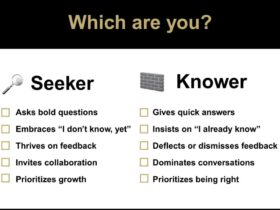
As the new year approaches, now is the perfect time to assess how your online reputation reflects your brand. A robust online presence is not just a luxury; it’s crucial for building trust, driving customer loyalty, and boosting business growth.
What is Online Reputation?
Online reputation refers to how your brand, business, or personal identity is perceived across digital platforms. This perception is shaped by online reviews, social media accounts, brand mentions, and other user-generated content.
A strong online reputation management strategy helps build trust and encourages brand advocacy, making it a critical factor in influencing purchasing decisions. To thrive, businesses must consistently monitor and refine their online presence, ensuring it aligns with customer expectations and industry standards.
Why is Online Reputation Important?
Your online reputation isn’t just a reflection of your brand—it directly impacts your bottom line. Positive reviews build confidence and act as powerful social proof for potential customers. Conversely, negative reviews can deter prospects, impact sales, and damage credibility.
By actively managing your reputation, you can foster trust, increase visibility on search engine results pages, and create lasting connections with your target audience.
Signs Your Online Reputation Needs Immediate Attention
A declining online reputation often presents clear warning signs. These include:
- Negative reviews and ratings
- Outdated or inaccurate information
- Lack of online presence
- Negative mentions on social media platforms
- Declining sales or customer interest
Let’s explore each of these in more detail and discuss how to address them.
1. Negative Reviews and Ratings
Negative reviews on platforms like Google and Yelp can shake consumer confidence. Research shows that 86% of people read reviews before making decisions, and most trust businesses that respond positively to feedback.
How to Address It:
- Regularly monitor reviews on major online channels.
- Respond promptly and constructively to both positive and negative feedback.
- Use customer feedback to identify opportunities for improvement.
Proactively managing reviews not only rebuilds trust but shows customers you value their input and are committed to improving their experience.
2. Lack of Online Presence
Without a visible online presence, potential customers may doubt your credibility. Today’s buyers rely heavily on online research before making decisions, making digital visibility essential.
How to Improve Your Presence:
- Optimize your website for search engine visibility.
- Use social media platforms to connect with your audience.
- Publish informative content like blogs or videos.
- Encourage satisfied customers to leave reviews on review sites.
A robust online presence builds trust and fosters engagement, making your brand more approachable and credible.
3. Negative Mentions on Social Media
Negative comments on social platforms can spread quickly, damaging your reputation. Ignoring these mentions can result in lost trust and missed opportunities.
How to Navigate This Challenge:
- Use monitoring tools to track brand mentions across online communities.
- Respond promptly to criticism, showing empathy and a commitment to improvement.
- Encourage positive interactions with your audience to outweigh negative comments.
Brands that actively engage with feedback often turn potential setbacks into opportunities to strengthen relationships and enhance their brand image.
4. Outdated or Inaccurate Information
Outdated information can confuse customers and weaken your credibility. Regular updates ensure your brand remains trustworthy and relevant.
How to Stay Current:
- Audit your website and social profiles regularly for inaccuracies.
- Use social media to quickly share updates and engage with your audience.
- Invite feedback to catch inconsistencies and improve your brand’s online reputation.
Transparency and up-to-date information enhance trust and encourage customer loyalty.
5. Declining Sales or Business Opportunities
A drop in sales or inquiries often stems from reputational issues. Negative reviews, poor engagement, or outdated information can all play a role.
How to Rebuild Trust:
- Address customer concerns proactively and transparently.
- Improve visibility with targeted SEO and content marketing strategies.
- Focus on exceptional customer service to win back trust and attract new customers.
Prioritizing reputation management can help regain lost momentum and attract new business opportunities.
How to Strengthen Your Online Reputation
To protect and improve your reputation before the new year, consider these steps:
1. Monitor Your Online Presence Regularly
Track brand mentions and customer feedback to identify and address concerns promptly. Tools like social media analytics and review platforms can help you stay informed and responsive.
2. Respond to Reviews Professionally
Show empathy and commitment when responding to negative feedback. For example, acknowledge issues, provide solutions, and follow up to ensure customer satisfaction.
3. Build a Strong Online Presence
Consistently post valuable content, engage with your audience, and use SEO strategies to boost visibility. A strong presence shows customers you’re invested in their experience and committed to maintaining a great reputation.
4. Leverage Reputation Management Tools
Platforms like Google and Yelp provide insights into public sentiment. Utilize online reputation management services to address problems and enhance customer satisfaction.
Looking Ahead
A strong online reputation sets the stage for success in the new year and beyond. By proactively addressing negative feedback, updating your online presence, and staying engaged with your audience, you can build trust, foster loyalty, and drive long-term growth.
A strong online reputation sets the stage for success in the new year and beyond. By proactively addressing negative feedback, updating your online presence, and staying engaged with your audience, you can build trust, foster loyalty, and drive long-term growth.
Take the time to evaluate your reputation today—it’s an investment in your future success. With a thoughtful response to customer feedback and a commitment to maintaining a positive brand image, your business can thrive.















